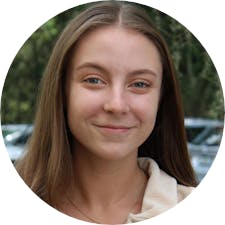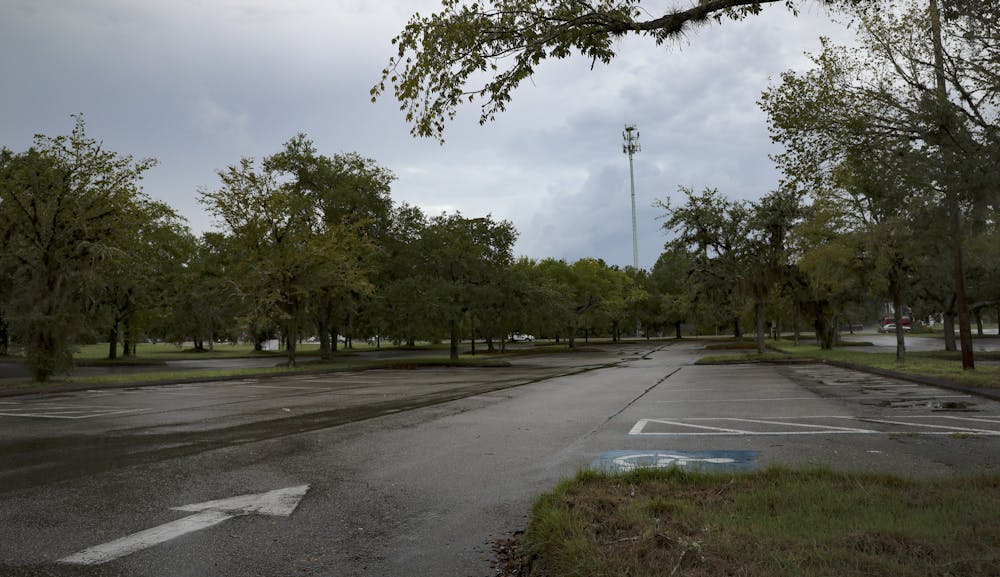What was supposed to be a step toward addressing the pressing need for a grocery store in East Gainesville left some community members feeling left out of the decision process.
Gainesville has 11 census blocks designated as food deserts, according to a report from the city. The U.S. Department of Agriculture defines food deserts as low-income areas where many residents have low access to a grocery store. Walmart is the only grocery store in East Gainesville. Some East Gainesville residents have to travel across the city to grocery shop despite a majority of these households not having access to a vehicle.
Bravo Supermarket, a small food chain designed to cater to the needs of customers living in a food desert, was proposed as a partial solution to the food desert by Fredric Washington, a real estate developer, during a Gainesville city commission meeting on June 17.
The city offered a $3.3 million loan in tax money to open the store. The city commission passed a motion 3-2 to give the city 30 days to review the Bravo proposal. Within these 30 days, the city is welcoming developers to submit a proposal for a grocery store.
Bravo would also bring in 30 new jobs starting at $15 an hour with residents of surrounding areas being prioritized for employment, Washington said.
Washington said Bravo would make a good fit for East Gainesville’s food desert, defined as a neighborhood more than a mile away from a chain grocery store, making it difficult for residents to buy fresh food. He said it would attract people looking for Bravo’s fresh produce, freshly cut meat and shelves stocked with items customers specifically request.
Tina Days, a 42-year-old East Gainesville resident, said she had never heard of Bravo Supermarket until this proposal. She and others in the community would have liked to hear more about the proposal before it was brought to the city commission, she said.
People on the East Side are in desperate need of a new supermarket, but she said the process needs to be slower and involve community members.
“We don’t want fast and wrong. We want slow and right,” she said.
Bravo would be at 2286 SE Hawthorne Road, where a Save-A-Lot and Food Lion used to be before closing years prior and furthering the issue of grocery store access. It would offer a salad bar and a cafe, along with space for local vendors to rent out booths to sell their products, Washington said. The supermarket would also have a credit union, which are scarce in East Gainesville, and would possibly house a medical clinic.
Bravo has also been offered as a space for classes for UF students. It will also be a place to teach minority and disadvantaged contractors how to do business with UF, Washington said.
Chanae Jackson, a 41-year-old community activist, said she is not in favor of the proposal and its partnership with UF.
“Anytime they state they want to do something and provide services for the University of Florida, and they say they want to provide students with classes, all I see is gentrification,” Jackson said.
Jackson said she was disappointed the city manager found a developer to build a grocery store instead of pursuing a community model. She believes there hasn’t been any meaningful engagement with East Gainesville residents or organizations like Grace Grows, a non-profit organization partnered with Grace Marketplace to empower those experiencing homelessness or food insecurity through horticulture. Grace Grows has conducted research on food insecurity in East Gainesville.
She also said it would be frustrating to have a space in East Gainesville for UF students when residents don’t have many meeting spaces of their own.
“If it’s really something that’s an initiative for East Gainesville, why would you not make meeting space be available for the rest of us actually over there,” Jackson said.
Responses from the city commission were mixed.
Commissioner Gail Johnson said the decision is difficult for her as she ran on the promise of a community grocery store. She said she believes the proposal must go through public process before approval, however.
“Things change when there is $3.3 million on the table,” Johnson said. “We have not given that opportunity to everybody.”
Commissioner David Arreola said he supports using the city funds to put a grocery store in East Gainesville, but he believes it is crucial for this proposal to go through a public process where community members weigh in on the decision before proceeding.
“That’s ultimately the responsibility that we have as public officials, which is to make sure that these processes are transparent and to make sure that everyone has a fair shot at public funding,” Arreola said.
Commissioner Reina Saco said she agreed with Arreola and that the commissioners must be good stewards of public funds, but they also must listen to the community, which has been expressing a need for fresh food in the area for years.
“If we have this opportunity, with what I consider very very generous terms on the term sheet, I don’t know why make it a point to delay,” Saco said.
Armando Grundy-Gomes, an East Gainesville resident and member of the City of Gainesville Regional Development Advisory Board, said the city needs to be more transparent.
“We need to have a proposal that goes through the vetting process because that’s what our guiding Northstar is,” he said.
He said the public process often takes more than 30 days, and the process of the Bravo proposal was rushed.
Some community members believe a lack of community input would be a sign of gentrification.
Hatdrika Noble-Monroe, the 27-year-old creator of Swarthy, a community grocery store, said she is in the process of creating a proposal for another grocery store option in East Gainesville. Her intention is not to compete with Bravo but to let city officials know that residents want a store that preserves their culture and has their input.
“It's not really about competing with Bravo; I love the concept,” Noble-Monroe said. “It will be beautiful to have multiple grocery stores, each serving different purposes for the community.”
Noble-Monroe said she loves the idea of bridging the gap between UF and East Gainesville and thinks Bravo would be beneficial to the community — but not without their input.
“By lacking the community input it basically denies the essence of who we are as a people, our culture, the way we perceive things, the way in which we feel,” Noble-Monroe said.
Contact Lucille at llannigan@alligator.org. Follow her on Twitter @lucillelannigan.

Lucy is a senior journalism major and the metro editor for The Alligator. She has previously served as a news assistant and the East Gainesville reporter for the metro desk as well as the health and environment reporter on the university desk. When she’s not doing journalism you can find her painting or spending time outside.






